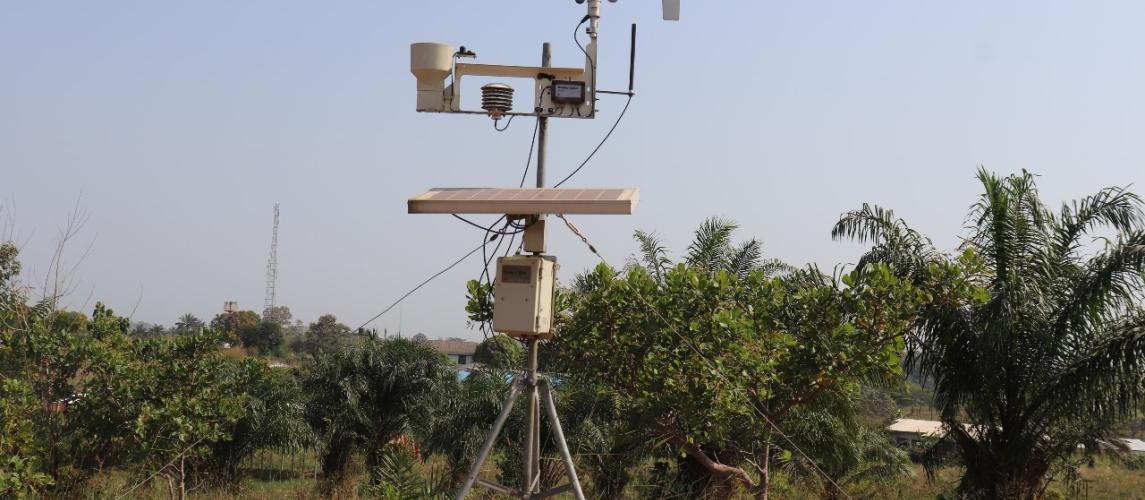
CARI Argo-Meteorology Weather Station Supports Scientific Agricultural Research
The meteorology section at CARI was founded on May 14, 2015, under the supervision of Mr. Aaron G. Marshall, the Team Leader of the institute, to help buttress the efforts of research scientists with the appropriate weather data for research purposes, planting materials, and production schedules for local farmers and agri-businesses, which contribute significantly to yield increases through the use of short, medium, and long terms weather forecasts and reports.
The meteorology data report is benefiting over 60 percent of local farmers and out-growers in the rural communities across Liberia, enabling them to be informed about impending weather conditions and events, and thereby allowing them to make informed decisions that would prevent hunger, reduce poverty, and boost food security in Liberia. This forecasting also provides a platform for agricultural partners and local farmers to not only exchange ideas but to also successfully adopt new technology information to increase food production in Liberia.
Agriculture meteorological information is very significant to the local farmers because they need information on the timing and duration of rains to make important decisions on when to plant, what to plant, and how to plant. This is especially crucial in the face of climate variability, whereby changes in rainfall and temperature can readily affect crop production, yield, and the livelihood of farmers, especially since farmers in Liberia heavily rely on the system of rain-fed agriculture.
Liberian farmers, other agricultural stakeholders, and small-scale farmers who are the targeted beneficiaries as far as seasonal weather forecasts are concerned, usually encounter threats and challenges such as climate change, and extreme weather conditions, consequently necessitating the provision of prevention messages.
The meteorological information would be regularly provided to disseminate weather forecast data, soil temperature, rainfall data, relative humidity data, and solar radiation data, to support CARI’s seven programs, including livestock, post-harvest, natural resource management, agricultural engineering and mechanization, bio-technology, and the socio-economic and applied statistics departments.
Weather parameters determine many agronomic events: plant growth and development, the epidemiology of fungal diseases, and the development stages of pests. We have to take into consideration also the potentially destructive impact of climatic phenomena such as frost, hail, precipitation, or radiation.
To understand and predict specific agronomic events, the measurement of the meteorological parameters involved is therefore essential.
Weather stations play a key role in addition to weather forecasts, and digital tools have made possible an unprecedented centralization and exploitation of the microclimatic data collected.
Current data collection and storage technologies can be complemented by modern analysis techniques that allow, for example, the reconstruction of meteorological archives, the monitoring of parameter trends, and the processing of forecast models for agriculture.
